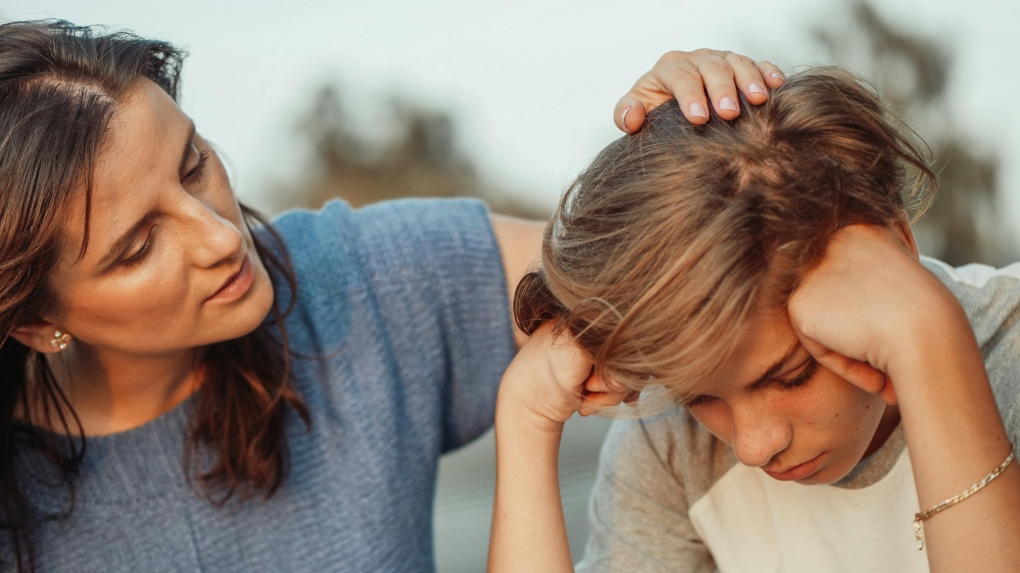How to talk to your kids about the Barrhaven mass killings and other distressing news

When devastating or tragic news breaks, like the mass killing of a mother, four young children, and their family friend in Ottawa, many parents of young children might have questions about how best to explain what happened.
Dr. Gail Beck, the interim Psychiatrist-in-Chief and Chief of Staff at The Royal, specializes in youth mental health and offered some advice when speaking to Newstalk 580 CFRA and CTV News Ottawa on Thursday.
“Studies have shown that not talking to children about events like this does more harm than good,” she said. “Your children will have lots of questions about this.”
Beck says one of the most important things to remember is honesty.
“Talk to your kids and speak about your own feelings, your own fear of what it means, your own distress at the idea of this happening so close to home, and use language that they’ll understand,” she explained. “At any point in time, the best advice to any parent or grandparent or aunts and uncles is to be honest. Be honest about your own feelings. Use simple language. Hold people close; give them the comfort that they need. Reassure them that any feeling that they have, whether they’re sad, angry, or worried, is absolutely normal. It’s a very difficult thing to go through.”
One of the hardest questions to answer is “why?” Beck says.
“It is hard and some of these children will be at that age where they ask ‘why?’ all the time,” Beck said. “At the same time, all of those children who’ve asked why so often are aware that this is another one of those questions to which there isn’t an answer. All we can do in those circumstances is take care of each other and love each other.”
If you don’t know the answer, Beck says the best thing to do is be honest and say, “I don’t know.”
Watching or reading the news can be difficult, especially for young children. When the news warns that a TV report or an article might be disturbing, Beck says you can tell kids that it might disturb them, too.
“If they want to listen to the news, you can sit down and listen to the news with them. If you are worried that the news will have details that are too graphic, tell your children, ‘I’m worried about what they’ll describe and I’m worried that that will be too distressing to you,'” she explained.
She says those are the kinds of standard advice that research says are good ways to approach these things with children, even very young children.
But she warns that the conversations will be difficult.
“It will be difficult for them. There’s no doubt about it. For many of them, they may not have experienced death, and so even the concept of death may be difficult for them to understand,” Beck said.
Local school boards have said they will have resources available for students, both at the school some of the young victims attended, and also at nearby schools. Beck says that is something parents can find reassuring.
“All of the school boards in Ottawa have extremely good resources to support families and to support children exactly dealing with this kind of circumstance. You can be sure that already, the counsellors and the resources that the school boards have at their disposal are already working with the schools and with the teachers,” she said.
One thing to watch for is a delay in understanding what happened. March Break is coming up and some kids might not fully process the news until after they get back to school.
“For many children, it may only be when they go back after March Break and they realize that one of their friends isn’t in class. The teachers will be working at this over a period of time, along with these counsellors and there will be assistance for parents and families,” she said.
There are mental health resources available throughout the city of Ottawa. For children in particular, the 1call1click portal can be helpful.
“All of us, people in my position, people in school boards, CHEO, we’ll all be doing everything we can to make sure that people know about the resources that are available,” Beck said.
You can find a list of more mental health resources here.
View original article here Source









